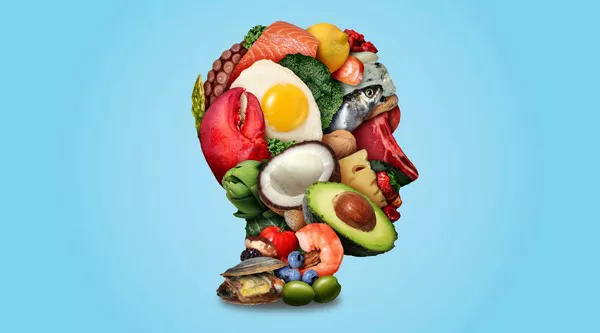Protein is an essential macronutrient vital for overall health and well-being. However, like any nutrient, consuming too much protein can have both short-term and long-term consequences. For men, understanding the ideal protein intake, recognizing the signs of excessive consumption, and balancing protein needs with other nutrients are key to maintaining optimal health. In this article, we delve into how much protein is too much for a man and provide valuable insights.
What Is the Recommended Daily Protein Intake for Men?
Protein plays a crucial role in various bodily functions, including muscle development, immune system support, and enzyme production. It’s particularly important for men who may have higher muscle mass and activity levels. A general guideline provided by health authorities is to consume approximately 0.8 grams of protein per kilogram of body weight per day for adults.
For example, if a man weighs 70 kilograms (154 pounds), the recommended daily protein intake would be:
0.8 grams protein/kg x 70 kg = 56 grams of protein per day
This guideline represents the minimum daily protein requirement to prevent deficiency. However, many experts suggest that active individuals, especially those engaged in strength training or endurance sports, may require more protein. In such cases, protein intake can range from 1.2 to 2.2 grams of protein per kilogram of body weight or even higher, depending on the specific goals and intensity of exercise.
Factors Influencing Men’s Protein Requirements
Protein requirements for men can vary significantly based on several key factors:
1. Activity Level
Men engaged in regular physical activity or strenuous exercise, such as strength training, bodybuilding, or endurance sports, generally require more protein to support muscle repair and growth. Athletes and bodybuilders often aim for protein intakes at the higher end of the spectrum.
SEE ALSO: Why is Protein Important After a Workout: Key to Post-Exercise Recovery
2. Age
Protein needs can change with age. Older men may require slightly more protein to counteract the natural loss of muscle mass (sarcopenia) that often occurs with aging. Ensuring adequate protein intake can help maintain muscle and physical function in later years.
3. Body Composition
Men with higher muscle mass may need more protein to support their existing lean muscle tissue and promote further growth. This is especially relevant for those pursuing bodybuilding or strength training goals.
4. Health Goals
Individual health objectives, such as weight loss, muscle gain, or maintaining overall health, can influence protein requirements. Weight loss and muscle-building goals may necessitate adjustments in protein intake to align with calorie and macronutrient targets.
5. Illness or Injury
During recovery from illness or injury, the body may have increased protein needs to aid tissue repair. In such cases, healthcare professionals often recommend adjusting protein intake accordingly to support healing.
6. Dietary Choices
Men following vegetarian or vegan diets may need to pay special attention to protein intake and ensure they incorporate adequate plant-based protein sources like legumes, tofu, tempeh, and quinoa into their meals.
SEE ALSO: Vegetable Protein: Sources & Nutritional Value & Intake
Potential Consequences of Excessive Protein Consumption for Men
While protein is essential, excessive intake can lead to various health issues for men:
1. Kidney Strain: Consuming too much protein may strain the kidneys, as they must filter the byproducts of protein metabolism, potentially leading to kidney stress.
SEE ALSO: Is Too Much Protein Bad for Your Kidneys? You Need to Know
2. Dehydration: High-protein diets can increase water loss, potentially leading to dehydration.
3. Digestive Issues: Excess protein can cause digestive discomfort, including bloating, gas, and constipation.
4. Weight Gain: Consuming excessive calories from protein can lead to weight gain, as calories from any source can contribute to fat storage when in surplus.
5. Imbalanced Diet: Overemphasizing protein may lead to neglecting other vital nutrients, potentially causing nutrient imbalances.
Recognizing Signs of Excessive Protein Consumption for Men
It’s crucial to recognize signs that your protein intake may be too high:
1. Digestive Discomfort: Frequent bloating, gas, or constipation may indicate excessive protein intake.
2. Kidney Issues: Persistent kidney pain or changes in urine color or frequency can be signs of kidney strain.
3. Dehydration: Feeling excessively thirsty or experiencing dry mouth may signal dehydration from a high-protein diet.
4. Weight Gain: Unintended weight gain despite increased exercise can suggest excessive calorie intake from protein.
5. Nutrient Imbalances: Deficiencies in other nutrients, such as fiber, vitamins, and minerals, may arise if protein dominates your diet.
Balancing Protein Intake for Optimal Health of Men
Balancing protein intake is essential to ensure optimal health and avoid both deficiencies and excesses. Here are key strategies for maintaining a balanced protein intake:
1. Set Protein Goals
Determine your protein needs based on factors like activity level, age, and health goals. Consultation with a registered dietitian or nutritionist can provide personalized guidance.
2. Diversify Protein Sources
Incorporate a variety of protein-rich foods into your diet. This not only ensures a broader spectrum of essential amino acids but also introduces diverse nutrients. Examples of protein sources include lean meats, poultry, fish, dairy products, eggs, legumes, nuts, seeds, and tofu.
[inline_related_posts title=”SEE ALSO” title_align=”left” style=”list” number=”4″ align=”none” ids=”2164,2099,1340,1257″ by=”categories” orderby=”rand” order=”DESC” hide_thumb=”no” thumb_right=”no” views=”no” date=”yes” grid_columns=”1″ post_type=”” tax=””]
3. Optimal Timing
Distribute your protein intake evenly throughout the day to support muscle repair and growth. Including protein in every meal can help maintain a steady supply of amino acids for your body.
4. Stay Hydrated
High-protein diets can lead to increased water loss through urine. It’s crucial to increase your water intake to offset potential dehydration and maintain proper bodily functions.
5. Balanced Diet
While protein is essential, it’s just one part of a healthy diet. Ensure your overall eating pattern includes a wide range of nutrients, including carbohydrates, healthy fats, fiber, vitamins, and minerals. Focusing on whole, minimally processed foods and a variety of fruits and vegetables is crucial for comprehensive nutrition.
SEE ALSO: Everything About Fiber and Protein Combination in Your Diet
6. Monitor Symptoms
Pay close attention to how your body responds to your protein intake. If you experience digestive discomfort, excessive thirst, kidney pain, or unintended weight gain, it may be an indication that you need to adjust your protein intake or overall diet.
Conclusion
Protein is undoubtedly a vital nutrient for men, supporting muscle health, immune function, and overall well-being. However, understanding your specific protein needs and recognizing the signs of excessive consumption are crucial for maintaining optimal health. By striking the right balance in your protein intake, diversifying protein sources, and ensuring a well-rounded diet, you can harness the benefits of protein while avoiding potential pitfalls associated with excessive consumption. Ultimately, a mindful and balanced approach to nutrition is key to your long-term health and well-being as a man.
[inline_related_posts title=”Related Topics” title_align=”left” style=”list” number=”3″ align=”none” ids=”2225,2167,2136″ by=”categories” orderby=”rand” order=”DESC” hide_thumb=”no” thumb_right=”no” views=”no” date=”yes” grid_columns=”1″ post_type=”” tax=””]

































